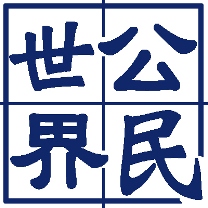Michael的案子進度一直沒跟上,他找老闆商量,想爭取多一些時間,老闆的回答是:No ifs or buts.
又是if又是but,這到底是怎麼回事?
No ifs or buts.
(X)沒有如果和但是。
(O)不要討價還價,別找藉口。/就是這樣,別再多說。
No ifs or buts意思是別再講任何的「如果」、「還有」、「然後」、「可是」,這句話大多發生在主管對下屬、父母對小孩、老師對學生等,上對下的權威式溝通中。有時候會在buts之後加about it。
She's the most qualified candidate, and there are no ifs and butsabout it!
(她是最合適的人選,無庸置疑。)
要表達「斬釘截鐵」的語氣,也可以在講完話之後,加一個period。
There will be no more shouting, period!
(別再喊叫了,到此為止!)
Don’t be a but man.
(X)別只是一般人。
(O)別老是把「但是」掛嘴上/別老是唱反調。
But大家最熟悉的用法是「但是」,當我們講「但是」時,就暗含「反對」之意。看一例:
Not so many buts, please.
(請別老是反對個沒完。)
經常唱反調的人,就可以叫but man。
A:You fired Bill?
(你讓Bill走了?)
B:Yes. I didn't want a but man like him holding our team back.
(對啊,我可不想讓團隊裡有個總是唱反調的人,阻礙團隊發展。)
But man也有人會用but boy:
I wish you wouldn’t be such a but boy, Jack. Can’t you ever agree with anyone?
(Jack我希望你別老是唱反調,你曾經贊同過任何人嗎?)
Come back but fast!
(X)回來啊,但別太快。
(O)趕快回來吧!
But在口語中,也常用來加強語氣,代表「非常、絕對的、而且要」,例如:
Everyone, but everyone, will be there.
(每個人,請注意是每個人,都必須到。)
Do it but now!
(現在馬上就做!)
This thing has to be done but good.
(這件事一定要辦得漂亮。)
…but then…
(X)但那個時候
(O)話又說回來
But then是個好用的口語,意思是「不過話又說回來;不過仔細想想」。
He's clumsy and untidy but then he's always willing to help.
(他不太靈光又邋遢;可是話說回來,他總是樂於助人。)
也可以加一個again,變成but then again:
I agree she types accurately, but then again, she's very slow.
(我承認她打字很準確,不過話又說回來,她打得很慢。)
責任編輯:倪旻勤
核稿編輯:陳瑋鴻



